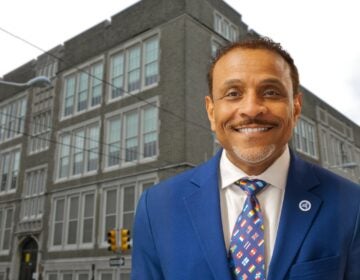After false start, DHS evaluating Philly after-school programs for possible cuts
 Photo via ShutterStock) " title="sstutoringx1200" width="1" height="1"/>
Photo via ShutterStock) " title="sstutoringx1200" width="1" height="1"/>
(Photo via ShutterStock)
Last week, Philadelphia providers of after-school programs such as tutoring and college prep were shaken up when their budgets were cut without warning.
Logging onto internal invoicing and attendance software, providers saw their “slot levels,” or the number of students they serve through Philadelphia’s Department of Human Services funding, had dropped.
The largest of the 71 after-school providers, EducationWorks, experienced cuts that represented about 10 percent of the 1,200 kids they serve with DHS funding. “Needless to say, providers were shocked,” said Elise Schiller, Pennsylvania director at EducationWorks.
To make budget cuts of that size, her organization would have to lay off 25 staff members and shut out about 150 kids, Schiller said, but it would still be able to operate.
“For small providers, those who operate one or two programs … this is a death knell,” she said. “Especially since there’s no preparation for it.”
The cuts totaled about $1.6 million across all providers over the second half of the budget year.
DHS Commissioner Vanessa Garrett Harley said software changes and an “unauthorized letter” caused “unnecessary panic and alarm among some service providers.”
“I met with our OST [out-of-school-time] partners today to address their concerns,” said Harley in a statement. “We are in the process of reviewing all of our prevention service contracts to determine what, if any, cost savings are possible, however, no decisions have been made regarding cuts at this time.” She added that possible cuts will not effect “students who are currently enrolled in programs.”
Attending that meeting, Rich Gitlen, executive director of Lutheran Children and Family Service, said Harley was “very honest and open” about the department’s financial situation and what prompted considering cuts in the first place.
“She explained that, based on a transitioning system that has been slower than expected, there was a need to look at budget dollars in all the programs,” said Gitlen.
That transition, “Improving Outcomes for Children,” outsources family case management to 10 community-based organizations, called “community umbrella agencies” or CUAs. The CUAs serve different geographic regions of the city based on police districts and are a part of the department’s legally mandated child welfare and crisis services.
Mandated services make up the bulk of the department’s $500 million budget, while prevention services, such as after-school and truancy programs, get about $25 million.
The “Improving Outcomes for Children” rollout started in January 2012 with two CUAs; the official plan calls for covering the entire city by 2016. With five of 10 organizations still transitioning into full implementation, DHS is administering this new program while continuing to serve about half of the city through its older service model.
Running these dual systems drain DHS resources, according to some service providers attending the meeting.
Painting a different picture of funding issues, Harley said in her statement that that funding “strains” for DHS are due to “an increase in the number of children in our care.”
Also at the meeting, several providers expressed concern at the expectation of making cuts while also fulfilling “living wage” requirements mandated for organizations that contract with the city.
Schiller and Gitlen said that at the meeting, Harley and other DHS representatives presented a plan to evaluate the 71 after-school partner organizations and set up individual meetings on areas for possible cuts. New information was promised on Jan. 30.
In the meantime, Schiller said she’s advised her staff to start meeting with parents of kids who don’t regularly attend the programs and say to them, “Look, we’re going to help you find something else because your child is on the cutting block.”
Schiller estimates at least 8,000 city students take advantage of DHS-funded after-school programs. Public Health Management Corporation, the group managing DHS after-school contracts, estimates the number of kids in after school and summer programs at 18,000.
Correction: An earlier version of this story mis-named the Public Health Management Corporation.
The Philadelphia Public School Notebook contributed reporting for this article.
WHYY is your source for fact-based, in-depth journalism and information. As a nonprofit organization, we rely on financial support from readers like you. Please give today.




